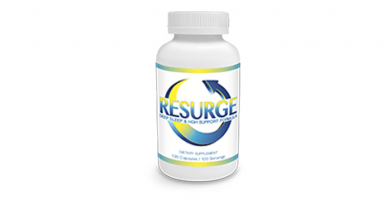How Magnesium and Calcium-Rich Water Actually Protects The Body from Diseases
You’ve probably heard about benefits of drinking water countless times already. Now, we see people carrying bottled water wherever they go; it’s very easy to pick up on that. Water intake is quite imperative for our body, by simply drinking it or by taking in water through various foods is important for our overall health, and we may all think we know everything we know about water, but a few recent discoveries about it might be surprising.
Our body is a mechanical machine – and water is our fuel is a good analogy to describe our body’s inherent need for water. It continuously loses water by breathing, sweating and excretion; the fluid lost from these processes needs to be recovered. Our water intake must be equal to the water output by these processes to keep our bodies health and hydrated or else we will suffer from dehydration which causes constipation and low energy causing chronic fatigue. We can dodge issues that add to recurrent chest burns and chronic stomach conditions.
At high altitudes, hot climates, during intense exercises, drinking water is extremely important, particularly by seniors whose quench for water inclines to be low. And you get better skin while you are at it. Water is an essential nutrient by itself. It aids all cells in the body to work properly. Typically, we obtain around 20% of water through the foods we consume and the left over 80% from drinking water and other liquids. We can categories water into two variations: soft water and hard water.
Soft water has lower doses of magnesium and calcium ions but higher doses of sodium ions. Freshwater from the rain is a form of soft water. Hard water is abundant in dissolved minerals such as magnesium and calcium. It is best suited for drinking because it has some taste and several vital minerals. Soft water is not appropriate for consumption.
Calcium is an important nutrient present in water. It is essential for bone growth and health, and for protection against decalcification. Inadequate source of calcium for an extended period of time can cause continuous joint pains and can lead to osteoporosis. Brittle nails, eczemas, migraines and headaches, are symptoms of calcium deficiency. Sufficient calcium in water can support to decrease stress, muscle excitability, exhaustion and increase immunity. Drinking water is one of the main sources of calcium.
Magnesium just like calcium is a vital nutrient in water that supports to maintain bone and teeth health. Our bodies require magnesium for metabolism, transport and absorption of calcium. Individuals who work out are required to intake plenty of hard water because of major loss of magnesium through sweating and micturition. The magnesium amount in hard water also assists to improve work out productivity. Deficiency in magnesium content in the body can result in endothelial dysfunction, declined insulin sensitivity and increased vascular reactions. Moreover, this can result metabolic syndrome, coronary heart diseases, type 2 diabetes and hypertension.
This is why experts constantly state that drinking ample amount of water is necessary, because 8 glasses of water a day keeps all the harmful diseases away




